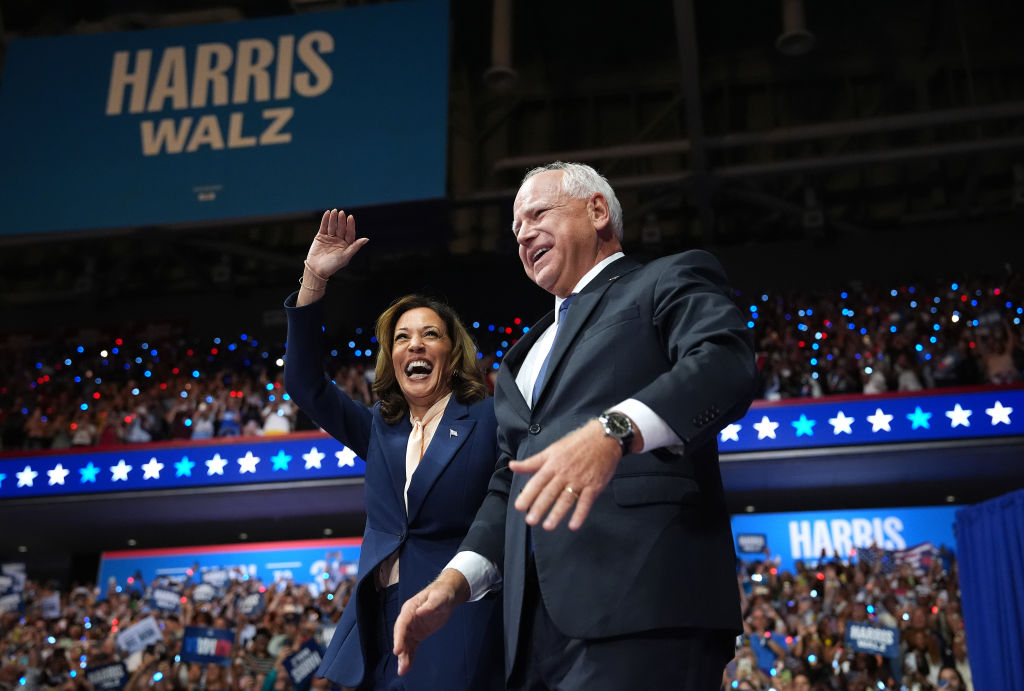
- Tim Walz’s Candidacy: Minnesota Governor Tim Walz has been selected as Vice President Kamala Harris’s running mate for the 2024 presidential election.
- Impact on Rural Voters: Walz’s appeal to rural voters is similar to President Biden’s in 2020, with Walz securing 37% of rural votes in his 2022 re-election compared to Biden’s 38% in 2020.
- Democratic Strategy: The campaign is leveraging Walz’s Midwestern roots and background as a teacher and football coach to connect with blue-collar voters in key swing states like Michigan and Wisconsin.
- Historical Context: Vice presidential picks typically have minimal impact on the overall election outcome, but the dynamics of the 2024 election are considered unconventional.
- Gwen Walz’s Role: Minnesota First Lady Gwen Walz has a significant background in education and criminal justice reform, contributing to her public role alongside her husband’s candidacy.
- Campaign Challenges: Despite the strategic selection, it remains uncertain whether Walz can sway traditionally Republican or undecided voters, especially given the tight race and historical context.
- Election Dynamics: The selection of Walz comes amidst President Biden’s unexpected withdrawal, and his impact on the election will become clearer as the campaign progresses.
- Voter Analysis: Voter analysis conducted by Fox News and other organizations provides insights into the potential effectiveness of Walz’s candidacy in changing voter dynamics.
These points cover the key aspects of Walz’s candidacy, his potential impact on the election, and the broader context of his selection.
The choice of Minnesota Governor Tim Walz as Vice President Kamala Harris’ running mate in the 2024 presidential election raises questions about his impact on rural voters. A Fox News Voter Analysis shows that Walz’s appeal to rural Minnesotans mirrors that of President Biden in 2020, with Walz securing 37% of rural votes in his 2022 re-election compared to Biden’s 38% in the 2020 presidential election. This similarity suggests that Walz may not significantly shift the dynamics among this key demographic.
The Democratic strategy focuses on leveraging Walz’s Midwestern roots and relatable persona, branding him as “Coach Walz” to connect with blue-collar voters. This approach highlights his background as a teacher and football coach, potentially resonating with voters in pivotal Midwestern states like Michigan and Wisconsin. Harris is banking on Walz’s regional ties to bolster their campaign’s appeal in these crucial swing states.
Despite the emphasis on Walz’s local appeal, it remains uncertain whether he can sway voter groups that have historically leaned away from Democrats. The voter analysis reveals that Walz’s support among white voters without a college degree closely mirrors Biden’s, with both securing around 44-45% in Minnesota.
Interestingly, Biden’s narrow victory in Minnesota and other “Blue Wall” states in 2020, such as Pennsylvania, Michigan, and Wisconsin, underscores the importance of these demographics. The Harris campaign aims to replicate this success, emphasizing the need to capture the attention and votes of the same electorate.
The analysis, conducted in partnership with The Associated Press and the National Opinion Research Center at the University of Chicago, provides a comprehensive picture of the American electorate by including early voters and those voting by mail, offering insights beyond traditional exit polling. The Harris campaign’s response to these dynamics will be crucial in shaping the outcome of the 2024 election.
Minnesota First Lady Gwen Walz, who is stepping into the national spotlight with her husband’s vice presidential candidacy, has a rich and impactful background that’s shaping her public role. While she maintains a low-key social media presence, Walz’s contributions to education and criminal justice reform are significant.
Born Gwen Whipple in Glencoe, Minnesota, she grew up in a family dedicated to education and small business. Her academic journey led her to teach high school English in Nebraska, where she met her future husband, Tim Walz. Their shared passion for education and their early experiences together—such as teaching side by side and starting a company organizing student trips to China—set the stage for their future collaboration in education and public service.
Gwen Walz’s career is marked by over two decades in education, including roles as an administrator and coordinator aimed at closing the achievement gap in Mankato Area Public Schools. Her commitment to educational reform extends to advocating for higher education opportunities for incarcerated individuals, a cause she passionately supports through the Bard Prison Initiative. This program brings liberal arts education to prisons, aiming to reduce recidivism and transform lives.
As First Lady of Minnesota, Gwen Walz became the first to have an office at the state Capitol, where she and Tim work in close proximity, enhancing their collaborative efforts on public issues. Her advocacy includes efforts to restore voting rights for formerly incarcerated individuals and support for gun control legislation.
The Walzes are also a family of four, with two children, Hope and Gus, and two rescue pets. Their personal journey through fertility treatment and their choice to name their daughter Hope reflect their resilience and dedication. This close-knit family, which has embraced public service and community involvement, brings a personal touch to Gwen Walz’s role as First Lady and now as a figure on the national stage.
Tim Walz’s selection as Vice President Kamala Harris’s running mate has stirred up significant interest, but its impact on the 2024 election remains uncertain. Historically, vice presidential picks have had minimal effect on the overall outcome of presidential races. However, this election is far from conventional.
Walz, the Governor of Minnesota, is seen as a strategic choice for Harris. His Midwestern roots and progressive agenda are meant to appeal to key swing voters and address concerns about Democratic elitism. Despite this, experts like historian Allan Lichtman argue that vice presidential picks rarely change election results.
With President Biden’s unexpected withdrawal and Walz’s subsequent addition to the ticket, the dynamics of the race have shifted. While Harris and Walz are working to energize the Democratic base and make inroads with undecided voters, some analysts question whether this move will make a significant difference. The impact of Walz’s selection could be more apparent as the campaign progresses, especially given the tight and unpredictable nature of modern U.S. elections.
